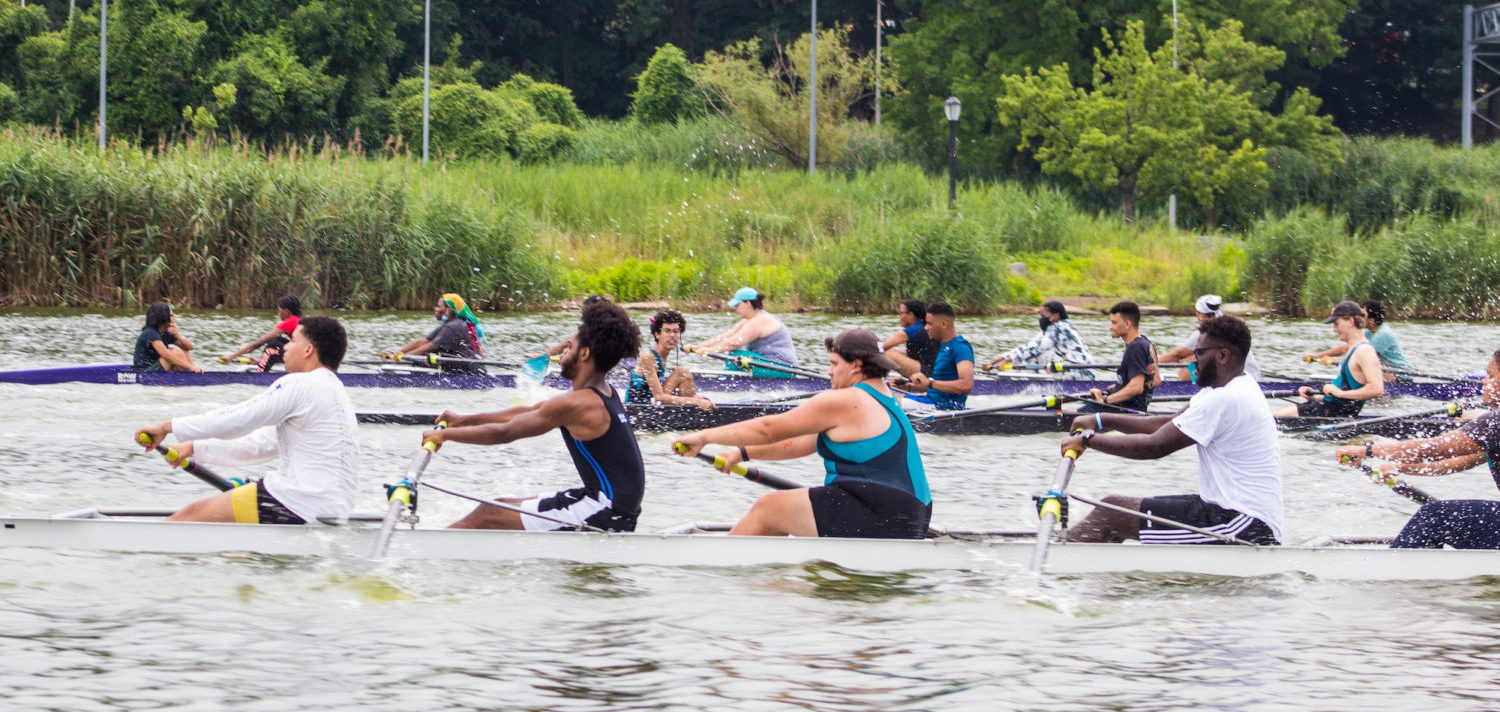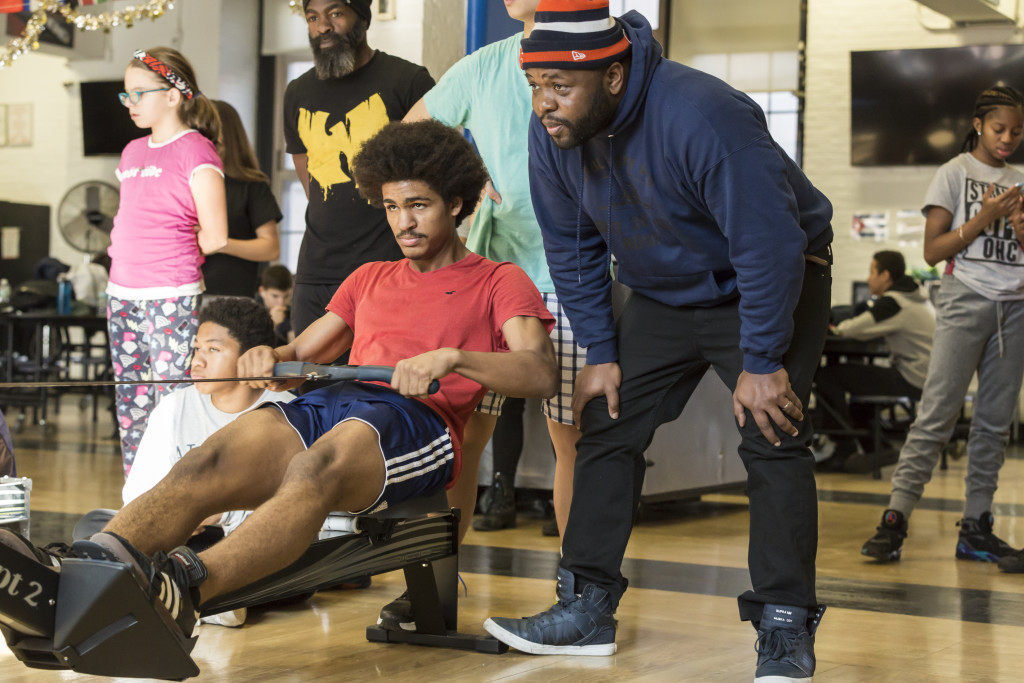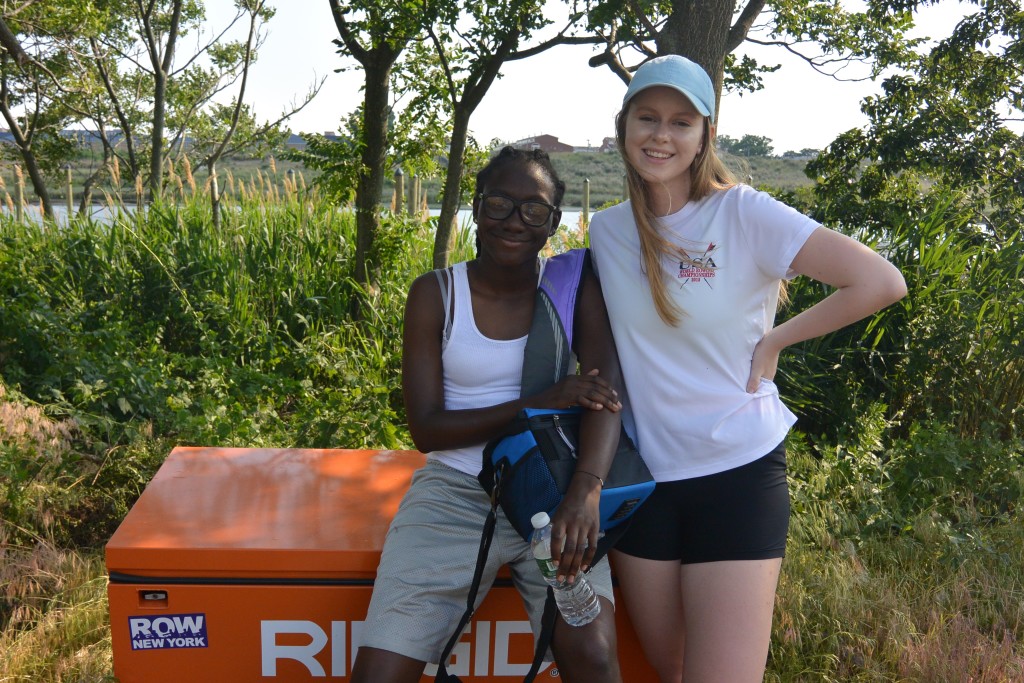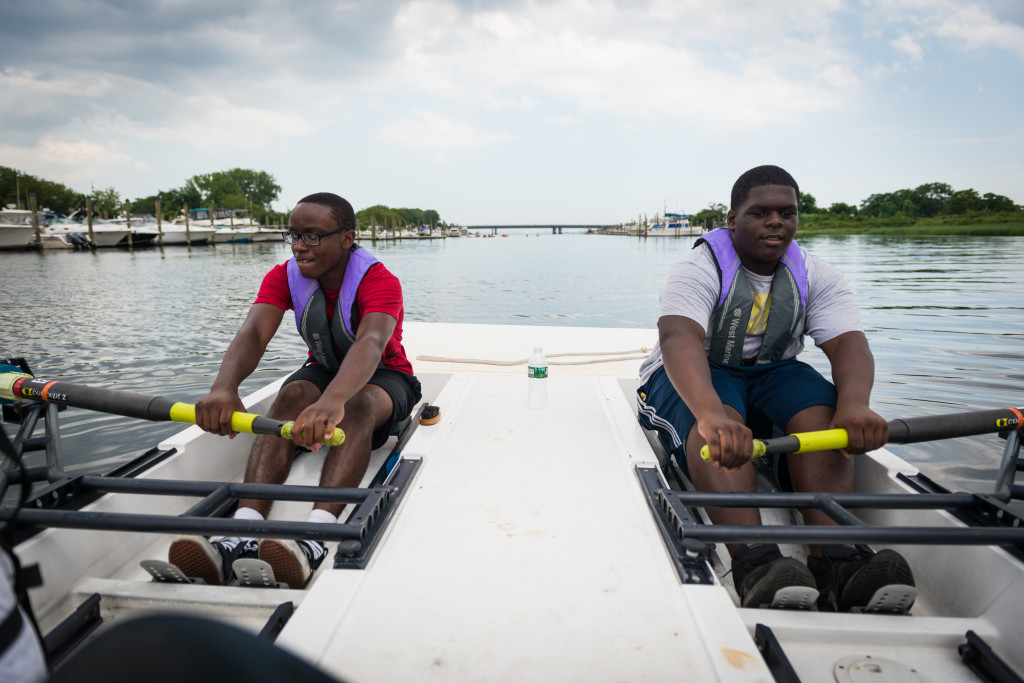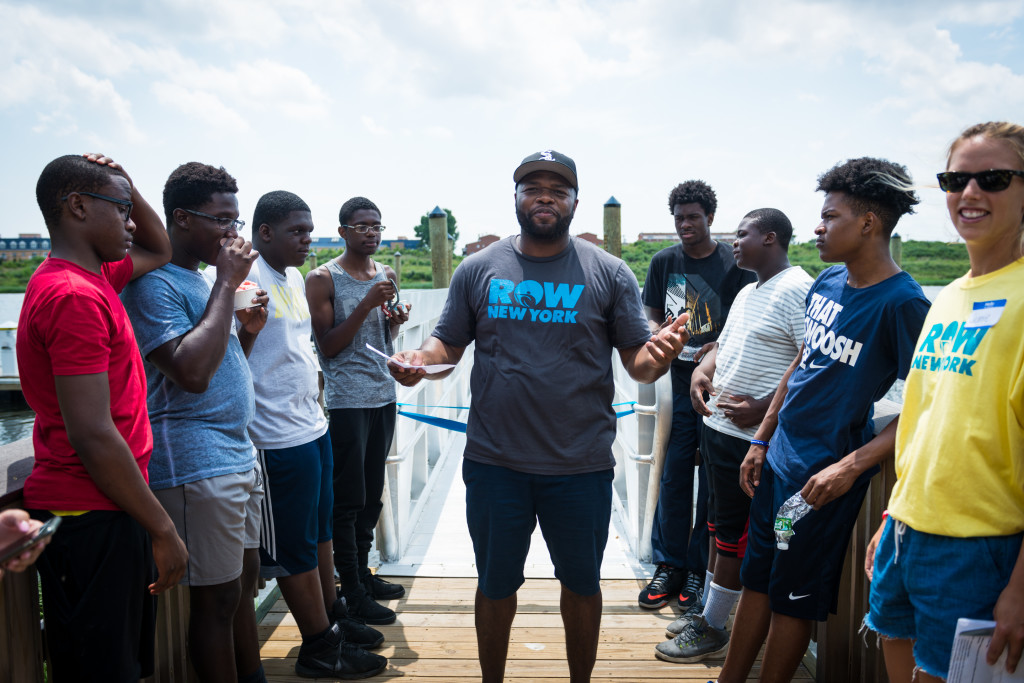Close your eyes and imagine a rower. Think about their height, their physical ability, gender, and race. What picture are you painting in your head? If the image you have conjured up looks anything like the sport’s history, this rower is likely white, tall, able-bodied, and maybe male.
We firmly believe that rowing, regardless of background or ability, should be for every body. Our boats at Row New York are a microcosm of New York City, encompassing all ages, races, nationalities, classes, and abilities. We still have a long way to go, but thanks to pioneers like Anita DeFrantz and Patricia Spratlen, the history of the sport is starting to change.
Below, we share the story of Row New York Board Member and Interim Chief Program Officer, Arshay Cooper. As a member of our nation’s first all-black men’s rowing team, Arshay unveils both the struggle and immense reward of being a black rower in a predominantly white rowing community. His whole story can be found in his autobiography, Suga Water.
Arshay,
How and why did you start rowing?
In the fall of 1997, I remember walking into the lunchroom after having a bad day and seeing this huge white boat. Behind the boat was a video of Olympic Rowing. I eyed the video looking for black people. I didn’t see any and was turned off. I was soon talked into attending an info session by my friend Preston. I showed up afraid because I didn’t know how to swim. The founder of the program Ken Alpart talked about the benefits of rowing and making history. I was intrigued by being in a black boat.
I was a history fan and I knew that to be a part of history you had to be willing to try something new and do it even when afraid. I sat on the erg that day and have been rowing since.
Do you remember when you fell in love with rowing?
It was spring break of 1998 in Philly. We had only been on the water a few times and it wasn’t pretty. We had guest coach Michael O’Gorman and had docked out of the Penn boathouse in two eights. We had finally learned how to feather. I remember the weather being so perfect.
A couple the college crews were rowing and they stared at our two boats of African Americans flying by. I looked up at the path where people were running and noticed that they had all stopped and were amazed at what the saw. That moment I knew that crew was the sport for me.
What is your book Suga Water about and what inspired you to write it?
I think our first African American Olympic rower says it best. “Arshay Cooper invites us to his world and the intricacies of life in inner-city Chicago. First, his mother’s amazing return from a troubled life and then his new life offered through the sport of rowing. It is a story of separate worlds colliding and creating a better result for those who engage. Your life will be enhanced by reading this book!” I was inspired to write Suga Water after visiting a friend in prison. He said, “I wish there was a story like yours I read in school instead of Animal Farms or Catcher in the Rye.” That moment I knew I needed to write something that relates to urban community teens.
As a Black rower in a predominantly white rowing community, did you or your teammates experience discrimination?
Most of the discrimination happened in the community where the boathouse was. The grocery store, the parking lot, restaurants, or just walking. People didn’t understand why we were there. We didn’t dress like rowers and didn’t wear uniforms until moments before race time. We experience cops stopping us, people staring, sarcastic jokes, and not being allowed in restaurants. Those things didn’t move us.
When you have a mission, your vision cannot be blocked. History had its eyes on us. We remained focused. Just like we were prepared for race days, we were prepared for race issues.
Do you have any advice for children of color, and Black boys in particular, who are trying to find their place in this sport?
Rosa Parks once said “We didn’t know History was being made. We just knew that we couldn’t give up.” My advice is to not give up. Our history teaches us not to. You will feel alone, people will say “YOU ROW?”. Say “yes” and keep it moving. The fear you create becomes the world you live in. So, embrace the sport, it will teach you everything you need to know about yourself and harmony. My passion, work ethic, drive, and courage are all a reflection of what I learned from crew.
How was your career in the food industry and what made you come back to work in under-resourced communities?
My career in the food industry was a lot like crew. Team chemistry and fast-paced. I cooked for some of the best places in the world. It was a career. Wanting to change the world is a calling, and that phone was ringing. After writing Suga Water I realized that inner-city work is a personal responsibility for me. Young people have questions and I have some answers. It’s really that simple.
What are you excited for?
There are some things in this world I will never see until I do it. So, I have a few tricks up my sleeve. Stay tuned. I am excited for the new CEO of USRowing, Patrick McNerney. He is very excited to make diversity a priority in this sport and I am happy to work with him on this.


